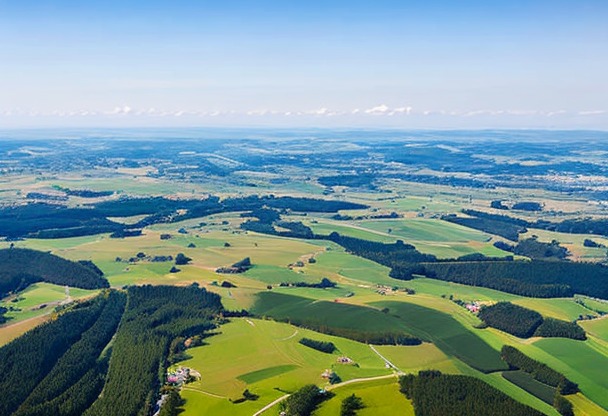Best time to travel to Germany
Choosing the right time for your trip to Germany can make all the difference. It is important to consider weather elements, seasonal events and peak tourist times to maximize your travel experience.

Location
Climate
Low and high season periods
The climate in Germany varies considerably depending on the seasons, which can impact the tourist activities and events available at different times of the year. Seasonality also plays a role in the costs associated with travel, such as hotel and flight prices.Low season: November to March
Low season in Germany typically runs from November to March, with cooler temperatures and fewer tourists. This period offers opportunities for those looking to save on their travel expenses, but it can also present some limitations in terms of cultural events and activities. However, there is still plenty to do during this time, including: Christmas markets in December, where you can taste local specialties and buy handcrafted souvenirs.High season: June to September
High season in Germany is between June and September, when the weather is generally warmer and sunnier. This is a great time to explore historic cities, visit museums, and spend time outdoors. Hotel and flight prices may be higher during this time due to increased demand, so it's best to book in advance if you're planning to travel during peak season.Major cultural events
Germany offers a variety of cultural events throughout the year, allowing visitors to experience different facets of German culture. Here are some of the top events to consider when planning your trip:- Oktoberfest Festival : This famous festival takes place every year in Munich between late September and early October. It attracts millions of visitors from all over the world to celebrate Bavarian beer and culture.
- Cologne Carnival : This festive event takes place in February or March, with colorful parades and traditional costumes. Participants celebrate in the streets of Cologne, making this period a great time to visit the city.
- Bayreuth Festival : Dedicated to the work of Richard Wagner, this prestigious festival is held every year in July and August in the city of Bayreuth. Tickets can be difficult to obtain, so booking well in advance is recommended.
- Berlin Film Festival : Also known as the Berlinale, this international film festival takes place every year in February. It presents a diverse selection of films and attracts film professionals and enthusiasts from all over the world.
National holidays
During public holidays in Germany, many shops and tourist attractions may be closed or have limited opening hours. It is therefore important to take public holidays into account when planning your trip.- New Year (January 1): Celebrations with family and friends with fireworks and festivities in the streets.
- Good Friday (variable date - March/April): religious commemoration day, some shops and attractions may be closed.
- Easter (variable date - March/April): Christian holiday marked by various local traditions, such as egg decorating and egg hunts for children.
- Labor Day (May 1): Demonstrations and parades are held across the country to celebrate workers' rights.
- German Unity Day (October 3): Commemoration of the reunification of Germany in 1990, with festivities and cultural events.
- Christmas (December 25 and 26): family celebration with gift exchanges, traditional meals and Christmas markets.
Insurance

Your credit card does not cover you in all situations, that is whyIt is essential to take out insurance before you leave to avoid any unpleasant surprises. If you need to see a doctor or be hospitalized, in some countries, medical costs are very high and you will then find yourself having to pay several thousand euros.
Our partner Chapka Insurance proposes the contract CAP ASSISTANCE 24/24 with many essential guarantees.


Flights

Your flight has been cancelled or delayed ?
You may be eligible for a compensation of up to €600 ! For this, lawyers are responsible for handling your claim with the airline and are only paid when the reimbursement is effective.
In conclusion, no financial risk for you, only advantages!
General statistics on immigration in Germany
According to official data from the German government, the number of foreigners living in Germany reached a record high in 2020 with almost 11 million foreigners. Of these, around 75% come from other member states of the European Union (EU). The most represented nationalities are Turks, Poles and Syrians. In terms of applications for international protection in Germany, the country registered around 102,000 new applications in 2020., a decrease compared to previous years. The majority of applicants come from Syria, ofAfghanistan and ofIraq.Skilled Immigration Act in Germany
Since March 2020, Germany has implemented the Skilled Immigration Act, which aims to facilitate access to the German labor market for skilled workers from non-EU countries. This law has created new opportunities for people wishing to work in Germany and has also simplified visa application procedures.Most requested visas in Germany
Germany offers different types of visas, tailored to the needs of those wishing to come to the country. Here are the most requested visas in Germany:- Schengen Visa : it allows you to stay in the Schengen area, which includes Germany, for a maximum period of 90 days in any 180-day period. This visa is generally used for tourism, family visits or business purposes.
- National visa : This visa is intended for people wishing to stay in Germany for a period of more than 90 days. It can be issued for several reasons, such as work, studies or family reunification.
- Student visa : This visa is specific to people wishing to pursue their higher education in Germany. It is valid until the end of the studies and can be extended if necessary.
- Work visa : it is aimed at people who have obtained a job offer in Germany. The duration of the visa depends on the employment contract and can be extended according to the needs of the employer.
Procedures for obtaining a German visa
To apply for a visa for Germany, non-EU nationals must usually visit the German embassy or consulate in their home country. The required documents vary depending on the type of visa being applied for, but typically include:- A valid passport
- A recent passport photo
- Proof of travel and subsistence (plane tickets, hotel reservations, etc.)
- Specific documents depending on the reason for the stay (employment contract, university acceptance letter, etc.)
International tourism figures in Germany
Germany is a popular tourist destination, with over 39 million international visitors in 2019. The main nationalities represented are the Dutch, Swiss and Americans. The country offers a cultural and natural diversity that attracts tourists from all over the world. Some of the most visited sites include:- The capital Berlin, with its historical monuments such as the Brandenburg Gate and the Berlin Wall
- Neuschwanstein Castle in Bavaria, which inspired Disney's Sleeping Beauty Castle
- Cologne Cathedral, a masterpiece of Gothic architecture
- The Black Forest, a mountainous and green region located in the southwest of Germany
Responsible tourism in Germany
Germany attaches great importance to the preservation of its environment and culture. The authorities therefore encourage responsible and sustainable tourism, for example by promoting public transport and ecological accommodation. Many local initiatives also aim to promote regional products and preserve craft traditions.

